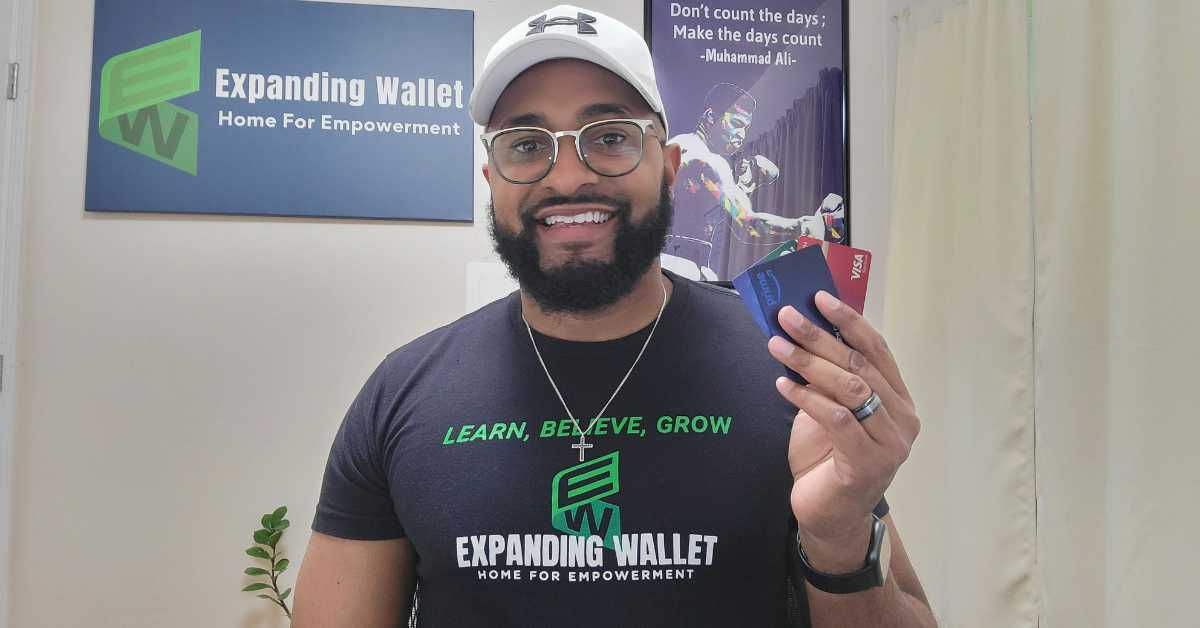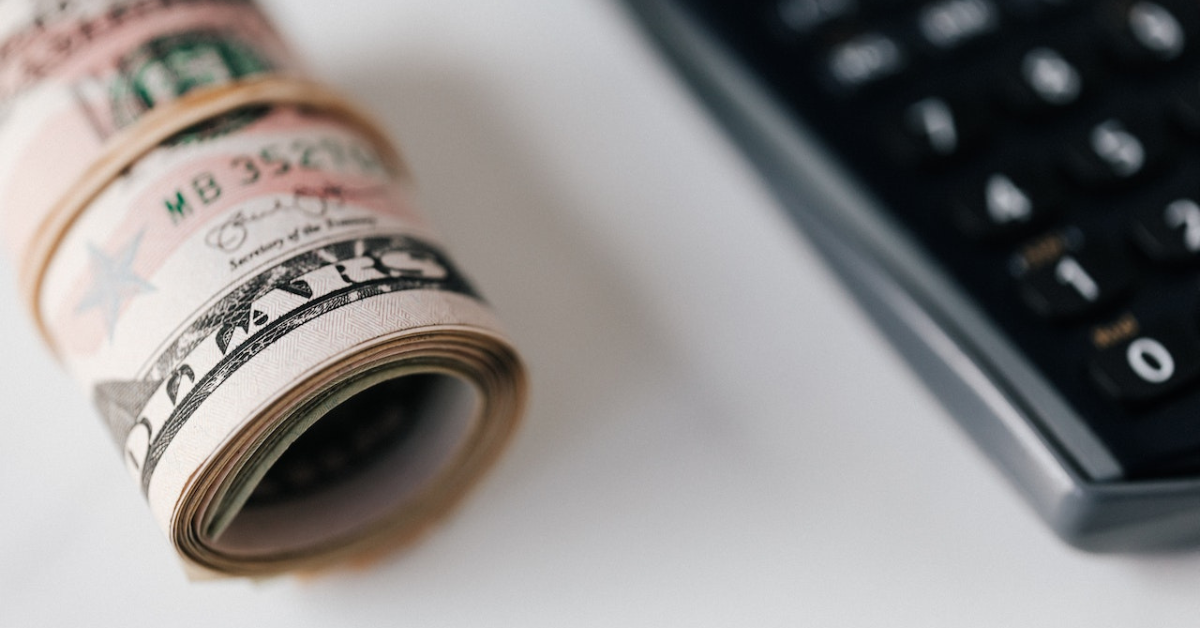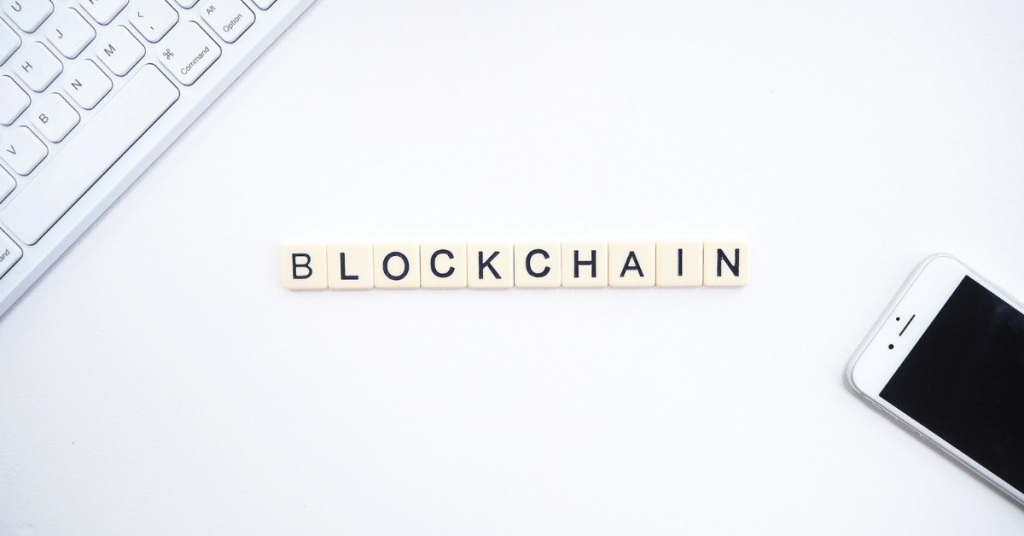
At this point, nearly everyone has heard about cryptocurrencies like Bitcoin, Ethereum, and Dogecoin. They’re all the rage and regularly make mainstream media headlines. This is mainly because of the wild ride they’ve taken investors on over the past decade. Bitcoin went from a value of around 10 cents back in 2010 to be worth over $60,000 as of this writing.
But not all of this investor enthusiasm is just about speculation and capitalization. For a lot of people, Bitcoin and cryptos represent something greater: Proof that the technology behind them actually works.
The infrastructure that most cryptocurrencies are built upon is a record of transactions called blockchain technology. Blockchain has gained a lot of popularity thanks to the rise of Bitcoin. But industry experts predict that this is just the beginning of blockchain applications.
In this post, I’d like to help you better understand what blockchain is and why it’s so beneficial. I’ll also explain how blockchain can be used in many other fields beyond just crypto. Lastly, we will look at how blockchain may even change the fundamentals of how we operate in society.
This post may contain affiliate links. If you purchase a product or service from an affiliate link, we may receive a small commission. This supports our website and there is no additional charge to you. Thank you!
What is Blockchain Technology Exactly?
Blockchain technology is essentially a ledger or new way to store data. For the recording, sharing, validation, and protection of information, this is is an evolution.
How Databases Work Currently
To better visualize the way databases are used today, think about the last time you made a Google or Excel spreadsheet. A spreadsheet is really just a simple database containing a 2D table of inputs. You can organize, search, and filter your list. But at its core, it’s still just rows of information.
Now think of how much more complex this must be for large-scale operations such as banks, technology companies, logistics centers, government institutions, etc. Most of these organizations either have their own in-house network of computers (that they privately own and control), or they outsource this responsibility to a third-party provider (who also essentially owns and controls this information).
Regardless, in each situation, the data that they store is just a table of inputs. They might be massive files with billions of entries, but ultimately that’s all they are.
How Blockchain is Different
What if instead of a 2D table, information was added on top of one another or “chained” together?
For example, imagine what happens when you swipe your credit card. That transaction would normally appear as a new row in a database somewhere. But what if we instead think of it as a chunk of new information, or a “block”, that gets linked to a previously existing set of data?
Then you swipe your credit card again tomorrow. That new swipe creates a new block, and it gets linked to this block from the day before. Before long, these blocks would start to form a 3-dimensional assembly of data sets that are chained to one another (hence the term “blockchain”).
That’s the structural difference between blockchain and the way current databases work. By having all of these blocks linked together, you create a much more robust and organized way to collect, review, and store information.
The Advantages of Blockchain
Beyond its structure, blockchain has a few additional key advantages:
Decentralization – Unlike the databases we just described a moment ago which are usually privately owned and maintained, blockchain is copied and spread out across a network of computers (called nodes). Each node’s job is to monitor and validate new entries. For someone to hack or change the record, they’d have to know where all of the nodes are and change them all to match. This makes it nearly impossible to tamper with blockchain.
Transparency – Because this network of nodes exists in more than one place and is open-sourced, it can be visible to anyone with blockchain access. This is usually in the form of a key that identifies which data entries belong to you. That means this information can be more readily accessible to everyone, not just the organizations that collect and maintain them.
Timestamps – Every time a new block gets added to a blockchain, it’s given an exact timestamp of when it took place. These timestamps are embedded in the record and copied across the network of nodes. Therefore, they cannot be altered.
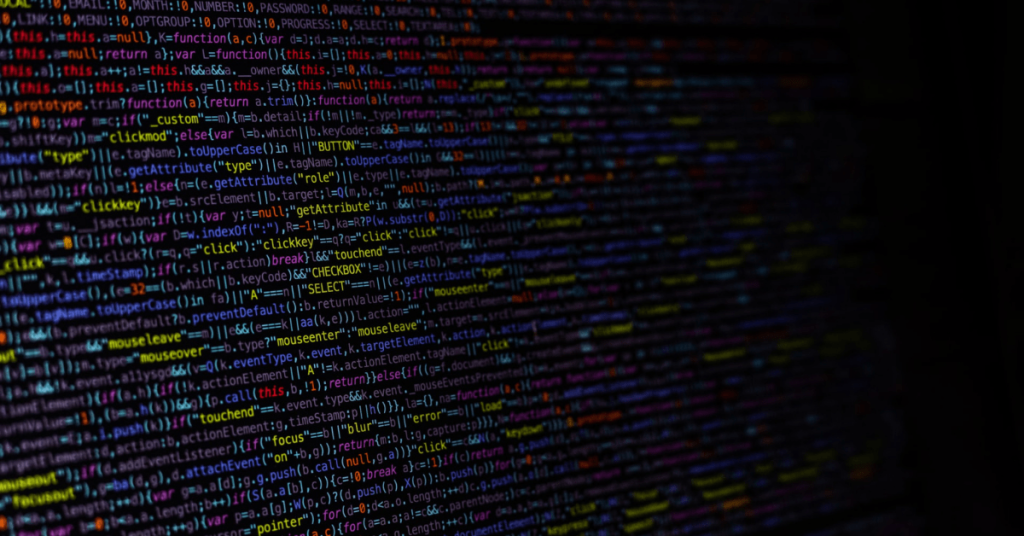
Where Did Blockchain Come From?
In terms of modern technology, blockchain is actually not such a new concept. It was first outlined by two researchers back in 1991, Stuart Haber and W. Scott Stornetta. Their goal was to create a method of recordkeeping with timestamps that could not be tampered with.
To put this in perspective, remember that back in 1991 most regular people didn’t have personal computers. In fact, Windows 95 hadn’t even been invented yet.
It wasn’t until almost two decades later, in 2008, when another research paper appeared online by the mysterious Satoshi Nakamoto, Bitcoin’s pseudonymous creator. This paper described “a new electronic cash system that’s fully peer-to-peer, with no trusted third party” and used blockchain technology as its basis. This effectively gave blockchain its first real-life application, and now the rest is history.

What Else Can Blockchain Be Used For?
Blockchain has certainly proven useful as the infrastructure for digital currencies. But what are some other applications where this technology could be adapted?
Digital IDs
Microsoft has been experimenting with blockchain by combining it with its Authenticator app as a way to give users control over their digital identities. These digital IDs could be used for government documents, validation for financial transactions, or even as a way to sign contracts.
Real Estate, Land, and Auto Title Transfers
Currently, most records for these items are still kept only on paper and are not easily searchable. With blockchain, this could be changed so that it’s very transparent who legally owns the property.
Digital Voting
No more manual counting, verifying votes, or claims of fraud. Blockchain could make it so that every vote is unique, authenticated, and counted within minutes.
Medical Recordkeeping
Medical records are horribly disconnected. They usually only exist with your local doctor or medical provider and are rarely combined with others unless you take steps to have your files transferred. With blockchain, entries would exist within the network of ledgers. This means any doctor or provider you visit could view them (once access has been granted).
Food Safety
There’s an exuberant number of steps that could go wrong between the origin of food and when it makes it to your plate. For example, if it’s discovered that a cut of meat was contaminated, then all the FDA can currently do is put out a recall to consumers. However, with blockchain, there would be infinitely more traceability. This is currently an initiative that’s being taken on by the IBM Food Trust.
Is There a Financial Opportunity?
The answer here is a resounding YES!
Market forecast company Markets and Markets estimated in 2020 that the demand for global blockchain will grow from USD 3.0 billion in 2020 to USD 39.7 billion by 2025. That’s an amazing compound annual growth rate of 67.3 percent in just 5 years!
Many of the companies that will be embracing blockchain technology will be in the financial sector, such as banks, credit card companies (like Visa), and even merchant transactions (like PayPal and Square). However, information technology companies like IBM, AWS, Microsoft, SAP, and Intel will also have a shared interest in adopting blockchain systems as well.
You can try to research the initiates of these companies yourself and predict which ones will make good investment prospects. Or you can let someone else do the picking for you by purchasing an ETF that specializes in this area.
In 2018, the ETF “Amplify Transformational Data Sharing” which trades under the name “BLOK” began actively investing in companies that are developing or implementing blockchain. Currently, the ETF invests at least 80 percent of the fund’s net assets in a portfolio of 45 companies. Since its inception, BLOK has made roughly a 150 percent return, so it’s a strategy that’s definitely paying off.
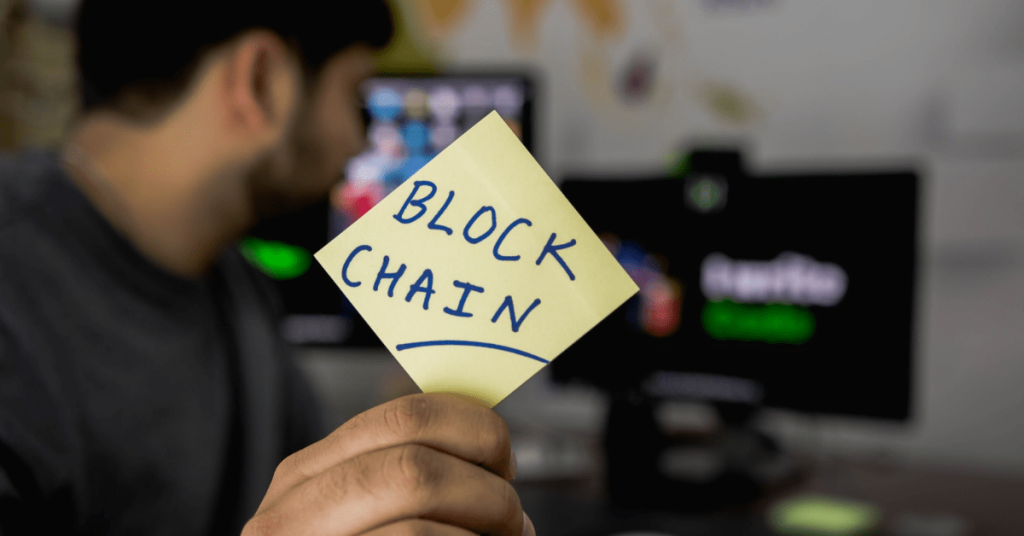
Are You Ready to Bet on Blockchain?
Despite what you may think about crypto and its volatile nature, it’s important to distinguish it from blockchain and recognize the bigger potential it has. Clearly, blockchain will have many more applications beyond just digital currency. As more sectors explore the possibilities of utilizing blockchain as a way to improve efficiency and reduce resources, it will grow to change the nature of infrastructure entirely.
While all of that is exciting, the real question for you now is: Are you prepared to get in on the ground floor and seize it while it’s still in its infancy? Remember that Bitcoin was only worth 10 cents just over a decade ago. What if this is a similar type of opportunity now with blockchain?
I own shares of Google, Microsoft, IBM, Amazon, and BLOK. This article is for educational purposes only and is not a recommendation for or against any stocks or ETFs.
Key Next Actions:
- Set aside time weekly to educate yourself on blockchain and its applications.
- Check out our Instagram page. You’ll find a 5-week IG TV series on cryptocurrency which also included discussions on blockchain.
- Subscribe to our mailing list if you have not, so you don’t miss any life changing information.
LEARN all that you can, BELIEVE in yourself, and take actions that allow you to GROW!
Get your FREE copy of the 5 Keys To Success Guide (click here).

